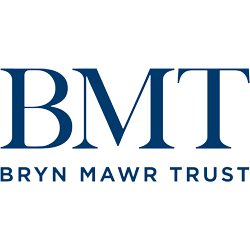The BMT Employee Assistance Fund was created to relieve employees of unexpected financial hardship by distributing tax-exempt grants composed of tax-deductible charitable contributions made by Bryn Mawr Trust, its employees, and others interested in supporting the program.
Please review the below questions. If you respond yes to all of the following criteria; we encourage you to proceed with the application process.
Can I answer yes to one of the below?
- Employed by your company on the date of the application
- Employees of affiliates
- On an approved leave of absence for no more than one year
- Full time employees (defined as those who work a minimum of 35 hours per week)
- Part time employees
- Employees based in U.S. only
Has the event occurred within this time period?
- 180 days
Is the event for which I’m requesting a grant listed below?
- Qualified Disaster: These events include state or federally declared disasters, disasters resulting from common carrier accidents, and disasters that result from a terroristic or military action.
- Death of employee or their immediate family member: This includes the death of the employee, spouse, or eligible dependent(s). The loss of income or the cost of funeral expenses or medical bills must significantly impact the family’s resources. The Fund may also be able to pay expenses to bring a child whose parents have died to live with a new family, typically a relative.
- Natural Disasters: Situations such as a wildfire, flood, tornado, hurricane, severe storms or earthquake that have damaged or destroyed the employee’s primary residence. The Fund cannot pay to repair other property and cannot pay to replace non-essential items, e.g. electronics, etc. Photographs and/or insurance reports may be required.
- Serious illness or injury, or non-routine/exceptional medical expense: The Fund is not a substitute for medical insurance; employees do not automatically qualify for a grant when they, or their dependents, are diagnosed with or suffer a life,-threatening or serious illness or injury. There must be resulting financial need placing significant pressure on the family’s financial resources. Doctor confirmation and/or medical documentation will be required.
- Domestic Abuse: This is a situation that causes the employee and other victims to leave an unsafe residence.
- Impacts Primary residence: This includes but is not limited to: fire, major home damage that could not be prevented, serious crime against the employee (robbery, arson, assault, domestic abuse or another reportable crime) that significantly impacts the family’s resources. Police, fire, or other official incident report may be required.
- Victim of a violent crime: This includes a serious crime against the employee (robbery, arson, assault or other reportable crime) that significantly impacts the family’s resources.
- Military Deployment: In the time of a natural disaster or national emergency, the employee, spouse or domestic partner is unexpectedly or unavoidably called to active duty from the military reserves or National Guard.
Are the hardships you are facing listed below?
- Food, Clothing, Rent: Immediate needs only, (Usually applicable up to 2-4 weeks after the event. For rent temporary housing up to 30 days)
- Evacuation expenses
- Repairs and Appliances (Housing-essential appliances and furnishings)
- Utilities (Housing-essential utilities (gas, water and electricity)
- Security Deposits (Housing-security deposits (for new housing if unable to inhabit existing home)
- Rent/Mortgage (Housing-Mortgage or rent assistance for primary residence)
- Unable to work due to the event (Expenses resulting from inability to work due to the event)
- Reasonable funeral, travel, and burial expenses
- Medical: significant medical expenses not eligible for insurance reimbursement
- Prescription medication not covered by insurance
- Travel expenses related to medical care
- Transportation: repairs other than routine maintenance, or repairs that could not have been avoided.
- Cost of public transportation or rental car for up to 30 days
- Unexpected childcare for up to 60 days.


